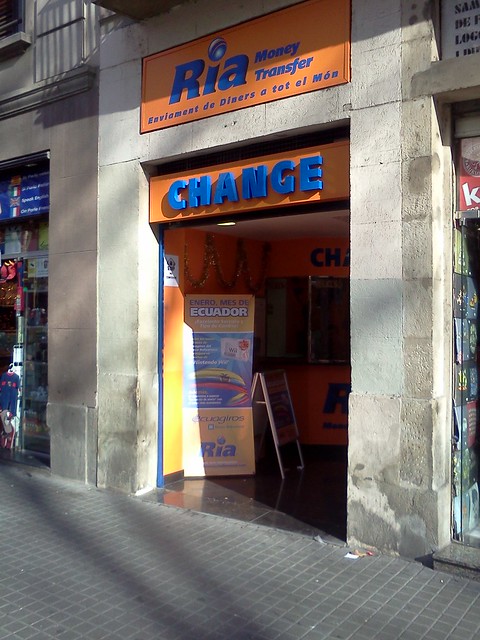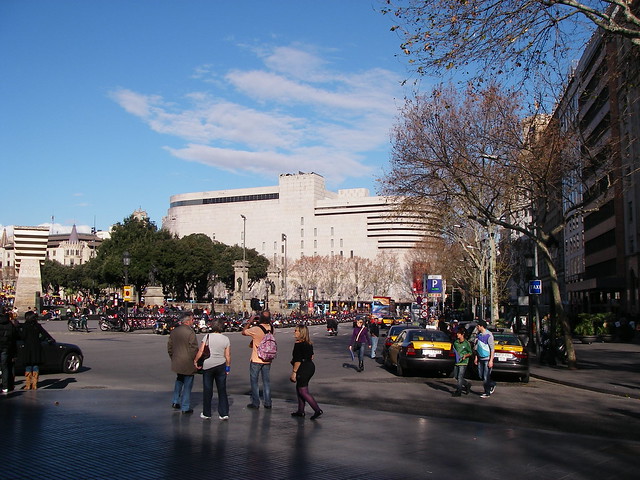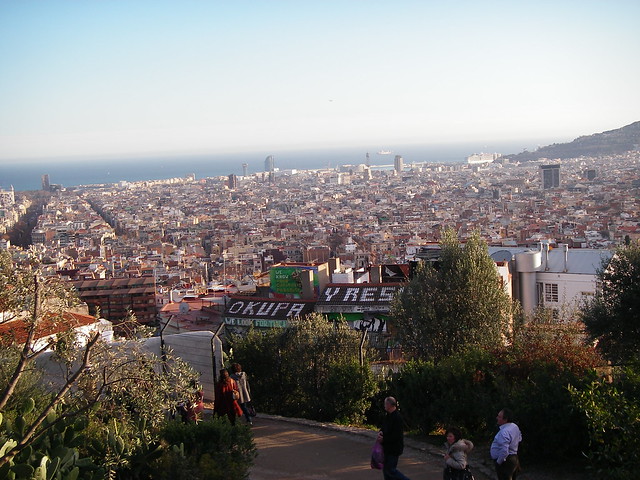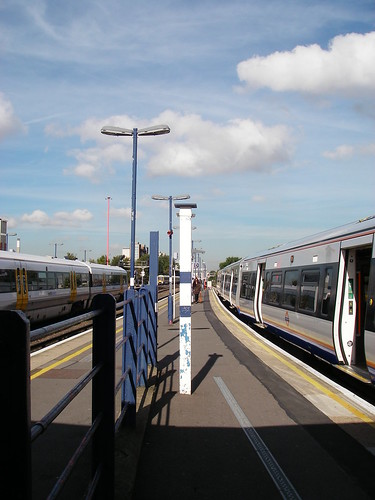Barcelona: The Money Maze
Sunday, January 9th, 2011I’ve said before that Cash is King and I stick by it in as far as it’s got to be better than going with the exchange rate offered by UK banks, or even airport bureaux de change (€1.08 to the sterling on Friday) on top of which you’ve got to pay commission. Commission and other hidden fees soon add up. A lot of people don’t seem to understand percentages, but basically they want anything up to 3 quid for every hundred quid you change and when it comes to paying a month’s rent these figures cease to look trivial. It is all in the percentages.
Basically nothing beats a good pre-paid cashcard (and I’m talking either FairFX or Caxton here), but you’ve got to remember to top it up. I hit a snag with the thing and in either case I couldn’t take out more than 150 € a day, which is how I like it.
So, armed with a bulging moneybelt, I went in search of exchange facilities as soon as I stepped off the plane. If you work in a bank you should consider learning a European language and relocating to the continent. Not only is there no Saturday opening, but working hours are from around 8 am to 2 pm most weekdays and the rest of the time is your glorious own.
But no fear: a few minutes of Googling told me that there is an exchange office which offers good rates in the basement of El Corte Inglés, the imposing department store that looms fortress-like over the Playa Catalunya.
So on Saturday morning, the second day of the sale (‘50% rebajas!’), I spent a few surreal hours weaving zombie-like through the crowds that filled the cavernous mazes of one of the world’s biggest department stores. I looked everywhere, from underground supermarkets and drug stores to upper-level designer outlets, and—after consulting the big table next to the lifts—patrolled the third floor where the mysterious ‘foreign money’ was allegedly located. For all its formidable size I felt oddly reminded of my home-town’s shabby department store with its worn fixtures. I’ve never seen the point of sales (I’m a discerning Oxfam shopper with a sideline in Marie Curie).
Eventually I asked a shop assistant in tentative Spanglish and, from what understood, ‘foreign money’ could only be used for buying, not for exchange. There was nothing left but hitting the nearby tourist runway of Las Ramblas.
The first place I passed displayed a rate of around 1.16, almost as much as the Caxton card. But the interbank rate had been nudging 1.20, so I decided to investigate, thinking that I could do better. —And came down to Earth with a bump.
If I understand the small print, they were going to hit me with 18 cents ‘tax’ for every Euro I bought. Some places were overtly quoting rates of less than an Euro per Pound Sterling, a drop of more than 20 percent from what I’d got on my card.
Once again it would seem that I have to pay for the vainglorious British sense of head-up-arsedness. And all the money that I’ve put up over the years so as to uphold the currency of the realm does not pay for hospitals and schools or even for Olympic show-off projects designed to swell national pride, but goes straight into the pockets of the money-changers.
However, it pays to do the footwork (if only a little). Ria Change offered a rate of 1.1045, a good 4% above their nearest competitors. But if you can wait (and I couldn’t) it will be well worth to check out the rates offered by the banks. And if your home-bank is as greedy as mine, dynamic currency exchange may not be something to be sniffed at after all. One ATM offered 1.16 and 2.5% commission, which is miles better than the Bank of Scotland (who would presumably get to charge the £1.50 overseas ATM fee but not also the conversion fee and commission on top of their shitty rates).




